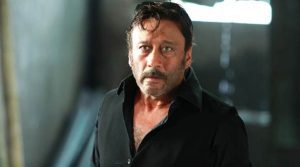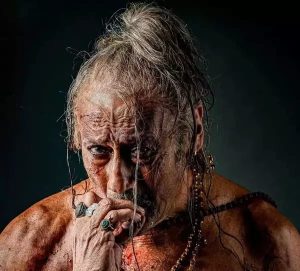A Career Built on Versatility
Jackie Shroff began his cinematic journey in the early 1980s with the Subhash Ghai-directed hit Hero (1983). From that point on, he quickly became a beloved figure in Indian cinema. Jackie Shroff stood out not just because of his rugged charm, but also due to his fearless approach to selecting roles. Over the decades, Jackie has acted in more than 250 films across 13 different languages including Hindi, Tamil, Telugu, and Marathi. This multilingual experience has not only expanded his reach but has made him one of the most recognizable faces in Indian entertainment.
Early in his career, he starred in intense dramas like Parinda (1989), where he portrayed a morally conflicted young man caught in the underworld. In Mission Kashmir (2000), his performance as a strict, duty-bound police officer revealed his ability to command presence even when sharing screen space with newer stars. Whether playing a romantic lead, a gangster, or a principled father, Jackie Shroff brought authenticity to each role. His career has evolved with time, but his dedication to every character has remained consistent.
Also Read : Wes Anderson Mocks Trump’s Movie Tariffs at Cannes Film Festival with Satirical Humor and Industry Insight
The Allure of Grey Characters
In the last few years, Jackie Shroff has become particularly known for portraying grey characters—those that blur the lines between hero and villain. Films like Singham Again and Baby John showcase his knack for bringing depth and humanity to roles that are often one-dimensional in mainstream cinema. These characters have deeply resonated with audiences, not because they are perfect, but because they reflect real-world complexity. Jackie Shroff has mastered the art of portraying flawed, unpredictable personalities with empathy and subtlety.
When asked why these characters connect so well with viewers, Jackie explained that he doesn’t see them as just negative. Instead, he treats every character with sincerity, bringing his own emotions and life experiences into the role. He pointed out that even in his early films like Samay (2003) and 100 Days (1991), he was playing layered roles rather than traditional black-and-white characters. That authenticity is what audiences respond to—he isn’t playing “the villain”; he’s playing a human being with reasons behind his actions.
A Spontaneous Approach to Roles
One of the most refreshing aspects of Jackie Shroff’s personality is his complete lack of pretense. In an industry known for calculated career moves, Jackie is delightfully impulsive. He admits openly that he doesn’t follow any formal strategy to stay relevant. Instead, he chooses films based on instinct and emotional connection. Sometimes, he does a film because a friend asked. Other times, it’s because the story or role speaks to him deeply.
He also jokes that he occasionally takes up roles simply when he needs money, or when a respected filmmaker from a big banner offers him a good opportunity. His honesty about his motivations makes him all the more endearing. Jackie Shroff isn’t trying to fit into a mold or please everyone. He trusts his gut and follows his heart—something that, ironically, keeps him far more relevant than many actors who carefully plan each step.

Embracing Every Role, Big or Small
Jackie Shroff believes that every role in a film serves a greater purpose. He doesn’t chase lead roles or screen time—he chases impact. Using a memorable metaphor, he compares a film to a chair with four legs. If you remove even one leg, the chair collapses. Similarly, every character, no matter how small, holds up the story. This philosophy guides his choices and enables him to take on roles that others might dismiss as “secondary.”
Whether he’s appearing in a cameo, a character role, or a main part, Jackie gives the same level of commitment. For him, acting isn’t about stardom. It’s about contribution. He respects the vision of the director and the structure of the script. By focusing on being a reliable and effective performer rather than a spotlight seeker, Jackie has built strong, long-lasting relationships across the industry. Directors and producers know he will always deliver—no matter the size of the role.
Staying Relevant Across Generations
Despite the rapid changes in the film industry, Jackie Shroff has managed to remain consistently busy. While many actors from his generation have faded from the limelight, Jackie continues to bag roles in high-profile projects. This is no accident. His adaptability, work ethic, and open-mindedness have ensured that filmmakers from every generation want to work with him. From veteran directors like Subhash Ghai to contemporary filmmakers like Rohit Shetty, Jackie Shroff’s name commands both respect and excitement.
He notes that the volume of his work hasn’t decreased with age. In fact, there were times during the 90s when he shot two to three films in a single day. Today, he jokes, even one film a day sometimes feels like a lot—but he still enjoys every minute of it. Jackie Shroff doesn’t compare his pace to others. He doesn’t feel the need to compete with younger actors. Instead, he simply continues to do what he loves—act—and lets the work speak for itself.


Jackie Shroff’s journey is a shining example of how authenticity, spontaneity, and love for the craft can sustain a career over four decades. He doesn’t follow trends. He doesn’t carefully curate a public image. Yet, audiences still flock to see him, and directors continue to cast him. His recent inclusion in Shah Rukh Khan’s upcoming film King is just another reminder that Jackie Shroff isn’t going anywhere. He’s not a star who’s trying to stay relevant. He’s an actor who never stopped being relevant because he never stopped being real.
In a world where many chase fame, Jackie Shroff stands tall by embracing truth. He plays every role—from anti-hero to comic relief—with honesty. And in doing so, he reminds us that the soul of acting isn’t in the spotlight—it’s in the sincerity.


